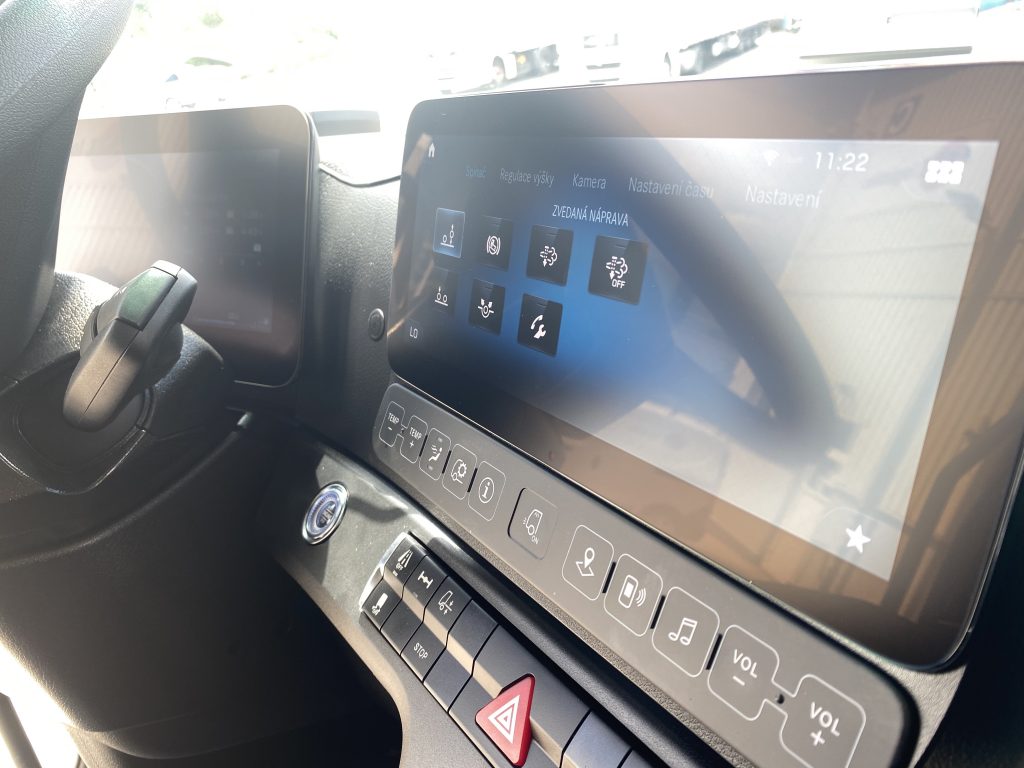Everybody assumes that the current extraordinary situation will, sooner, or later, blow over and business including transport will once again find its usual rhythm. What are the overall forces affecting 21st century transport, what trends can we see in the industry and how they might be impacted by the current situation? We talk to Ing. Petr Kozel about this and much more.
What technological trends do you expect to emerge in the transport industry in the near future? Are there any technologies that, in your opinion, will take over the business in a more distant future?
Land transport is still the most widely used form of good transportation in Europe. Growing demand and ever increasing requirements in terms of high-quality shopping have for many years put significant pressure on seamless and quick deliveries. Many trends have been widely discussed, usually in the context of environment protection and traffic collapse in city centres. Criticisms of diesel delivery vehicles and gigantic investments in electric mobility have become political arguments.
Despite intense debates in the media, alternative drive technologies for long-distance freight, be they electrical, hydrogen or fuel-cell vehicles, are still in very early stages of development and large-scale deployment of trucks with alternative engines cannot be expected any time soon.
The only viable solution for environment protection and alleviation of congested cities lies in optimisation of conventional transport. Although transport companies and their customers have been working on transport optimisation for many years, there is still a lot of room for improvement. I expect growing pressure to consolidate goods and use the full capacity of vehicles as well as increased precision of arrival for loading and unloading. I think companies will more extensively use swap bodies and mega trailers and, if EU-level laws are adequately amended, they will be able to use gigaliners even for cross-border freight. In the very near future, we will definitely see big logistic and transport companies expand their use of GPS monitoring of transport units.
In the medium-term, if technology and legislation manage to find a reasonable middle ground, we might see the dawns of platooning.
What is your opinion on pressure to move freight from roads to trains? Where it the biggest pressure coming from (European Union, public, green activities, etc.)?
There are virtually no links in the entire supply chain that would not support a greater use of railways, at least in theory. In practice, however, rail freight has been going down and reasonable customers do not even ask for this alternative. Requirements on faster delivery times are simply in favour of truck rather than train transport. A fundamental prerequisite for a more massive use of rail transport is a sufficiently dense network of trans-shipment stations and high-speed railway routes. This would require huge investments and since isolated solutions make no sense in the European context such a project would exceed the borders of a single country. Rail freight does not have much future without a back bone network including efficient and fast end-point reloading of goods with technologies for loading on trailers and swap bodies that can continue on the last-mile road stretch. Given the fast turnover of Czech Transport Ministers, there hasn’t been much progress as this segment of logistics requires a continuous, long-term collaboration between the state and transport/logistics companies. So no, I do not feel a lot of pressure to use the railways.
In your opinion, how will the coronavirus crisis impact the transport market?
As COVID-19 is not likely to leave Europe any time soon, so certain of the measures are here to stay, too. The strongest medium-term effect will be weaker consumer demand. Despite all measures to maintain employment rates adopted up to date and billions invested in boosting sales, I still believe that that sales will drop, primarily for two reasons. Firstly, many consumers are starting to realize that they need a financial buffer to weather difficult times like this (this sort of pressure may also lead to deflation) and secondly, movement across Europe will remain limited.
Of course, some companies will see a dramatic growth, for example those providing logistics for e-shops but the whole industry overall will decline. If I can make a prediction, I would guess that revenues from land transport will drop by 5-10% this year. Such a huge drop can lead to serious consequences because many Czech transport companies have no financial reserves whatsoever and some of them will try to compete through lower prices rather than through higher quality.
Furthermore, there is one crucial long-term risk. Eventually, somebody will have to pay for today’s generous handouts. While our governments maintained a budget deficit during rich times, at least there was no pressure to increase taxes. In the future, many cabinets might be tempted to increase taxes as a simple solution to budget balancing and transport companies would be an easy target. Highway tolls, road taxes, excise tax on diesel and VAT – all bring a quick buck for the state. Transport companies find it difficult to reflect these taxes in their prices, so the result is further reduction in their already small margins and cash flow issues. If the Czech state decides to take this approach, it would only benefit foreign competitors from countries further to the east. As a consequence, the transport market could become completely dependent on foreign companies and the smallest shock (maybe in the form of a new crisis) could totally paralyse the Czech market.
Can companies in your line of business actually prepare for unexpected events such as pandemics, natural disasters, civil unrest, etc.?
There are two factors – the probability of an event occurring and the cost of preparing for it, which should not interfere with the company’s financial results too much. Each company should, therefore, use common sense and “shopkeeper” calculation in its decision-making and define simple principles of sustainability. These principles must include protection of the environment, long-term relationship with customers and employees and, above all, responsible financial management – including a financial reserve to cover 3-6 months of lower revenues. After all, computer viruses are a common feature of our life, too. You cannot prepare for them in advance and firewall software will always only play catch-up. Each pandemic and natural disaster is unique and you cannot reasonably prepare for them ahead of time – but strong and confident companies that can act with certain flexibility will be able to make it through.









